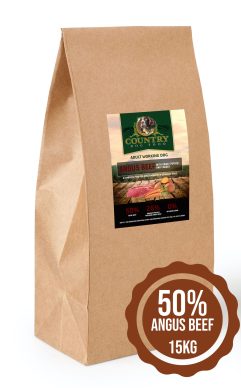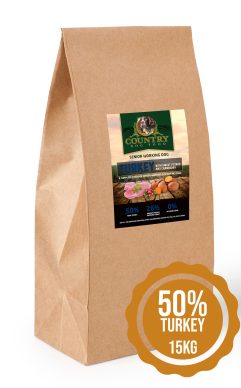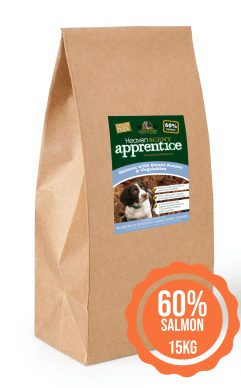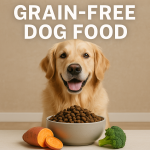
Sheepdogs, like Border Collies, Australian Shepherds, and other herding breeds, are vital in managing livestock. Their work is demanding, requiring high energy levels, mental sharpness, and physical endurance. Proper nutrition is essential to support these working dogs, enabling them to perform their duties effectively. In this article, we’ll explore the specific nutritional needs of sheepdogs and provide guidance on feeding practices that will keep them healthy and ready for work.
Understanding the Role of Sheepdogs
Sheepdogs are bred and trained to herd livestock, a job that requires them to work long hours, often in challenging conditions. They must be agile, quick, and able to make decisions on the spot. Given the nature of their work, sheepdogs burn a lot of calories and require a diet that supports their high energy expenditure.
Their role also involves a lot of mental activity. Sheepdogs need to be alert and focused, as they must constantly assess the movement of the flock and respond to commands from their handlers. This means their diet should also support cognitive function and overall brain health.
Key Nutritional Requirements for Sheepdogs
1. High-Quality Protein
Protein is the foundation of a sheepdog’s diet. It supports muscle maintenance and repair, which is crucial given the physical demands placed on these dogs. A diet rich in high-quality protein helps to keep their muscles strong and resilient. When considering protein sources, look for dog foods where meat (such as chicken, beef, or fish) is the primary ingredient.
Proteins are made up of amino acids, some of which are essential for dogs because their bodies cannot synthesize them. These essential amino acids must come from their diet, making it important to choose foods that offer a complete protein profile.
2. Healthy Fats
Fats are an essential source of energy for sheepdogs, providing more than twice the energy per gram compared to proteins or carbohydrates. They are particularly important for dogs that engage in endurance activities, as fats are metabolized slowly and provide sustained energy over time.
Omega-3 and Omega-6 fatty acids, in particular, are vital for maintaining healthy skin and a glossy coat, which is important for sheepdogs working in various weather conditions. These fats also have anti-inflammatory properties, helping to support joint health and reducing the risk of arthritis as the dog ages.
3. Complex Carbohydrates
While fats are the primary source of energy, carbohydrates also play a crucial role in a sheepdog’s diet. Complex carbohydrates, such as those found in sweet potatoes, brown rice, and oats, provide a steady release of energy, helping to keep the dog active throughout the day without energy spikes and crashes.
Carbohydrates also contribute to a healthy digestive system, as many complex carbs contain dietary fibre, which aids in digestion and helps maintain regular bowel movements. For working dogs, a well-functioning digestive system is crucial to ensure they can efficiently absorb and utilize the nutrients from their food.
4. Vitamins and Minerals
Vitamins and minerals are essential for various bodily functions, from bone development to immune support. Key vitamins for sheepdogs include:
- Vitamin A: Supports vision and immune function.
- Vitamin D: Aids in calcium absorption and bone health.
- Vitamin E: Acts as an antioxidant, protecting cells from damage.
- B-vitamins: Involved in energy metabolism and the maintenance of healthy nerves.
Minerals like calcium, phosphorus, and magnesium are vital for bone health, while zinc and selenium support the immune system and skin health. A well-balanced diet should provide these vitamins and minerals in the appropriate amounts to support the overall health of the sheepdog.
5. Water
Hydration is often overlooked but is crucial for a sheepdog’s health and performance. Dogs can lose a significant amount of water through panting, especially when working in hot conditions. Fresh, clean water should always be available to sheepdogs, especially after a day of herding when they may be dehydrated.
Feeding Practices for Sheepdogs
1. Portion Control
The amount of food a sheepdog needs will vary depending on its size, age, and activity level. Working sheepdogs require more calories than those that are less active or retired. It’s important to adjust portion sizes based on these factors to ensure the dog receives enough energy without becoming overweight.
To avoid overfeeding, monitor the dog’s weight and body condition regularly. If the dog starts to gain excess weight, reduce portion sizes or switch to a lower-calorie food.
2. Regular Feeding Schedule
Establishing a regular feeding schedule is important for maintaining a sheepdog’s energy levels. Most working dogs do well with two meals per day, one in the morning and one in the evening. This routine helps to stabilize their metabolism and ensures they have the energy needed for a full day of work.
Avoid feeding the dog immediately before or after intense exercise, as this can lead to digestive issues like bloating. Allow at least an hour after feeding before the dog engages in strenuous activity.
3. Supplementation
While a balanced diet should provide all the necessary nutrients, some sheepdogs may benefit from additional supplementation, particularly if they have specific health concerns. Common supplements for working dogs include:
- Joint supplements: Containing glucosamine and chondroitin to support joint health and mobility.
- Fish oil: Rich in omega-3 fatty acids, supporting skin, coat, and joint health.
- Probiotics: Helping to maintain a healthy digestive system, especially during periods of stress or after antibiotic treatment.
Consult with a veterinarian before adding supplements to ensure they are appropriate for your dog’s needs.
Choosing the Right Food for Sheepdogs
When selecting food for your sheepdog, consider the following factors:
1. Ingredient Quality
Look for dog foods that use high-quality ingredients, with real meat as the first ingredient. Avoid foods that contain fillers like corn, soy, or wheat, which provide little nutritional value and can be difficult for some dogs to digest.
2. Grain-Free Options
Some sheepdogs may have sensitivities or allergies to grains. In these cases, grain-free dog foods can be a good option. These foods often use alternative carbohydrates like sweet potatoes, peas, or lentils, which are easier to digest and provide a steady source of energy.
3. Tailored Nutrition
Consider foods that are specifically formulated for active or working dogs. These foods typically have a higher protein and fat content to meet the increased energy demands of sheepdogs. Additionally, they may include added joint support and antioxidants to help with recovery and overall health.
Paws for Thought: Final Thoughts on Sheepdog Nutrition
Feeding sheepdogs the right diet is essential to ensure they can perform their herding duties effectively. A diet rich in high-quality protein, healthy fats, complex carbohydrates, and essential vitamins and minerals will provide the energy and nutrients these hardworking dogs need. By choosing the right food and feeding practices, you can support your sheepdog’s health, keeping them strong, agile, and ready for the demands of their role.
Remember, each sheepdog is unique, and their dietary needs may change over time. Regular check-ups with a veterinarian will help ensure that your dog’s diet remains appropriate for their age, weight, and activity level. With the right nutrition, your sheepdog will continue to excel in their role as a vital member of your team.
Great Food for Sheepdogs
-
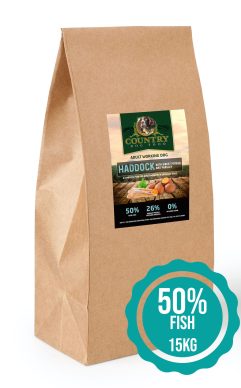 Grain Free Haddock with Sweet Potato & Parsley – Adult Dog Food£64.57
Grain Free Haddock with Sweet Potato & Parsley – Adult Dog Food£64.57 -
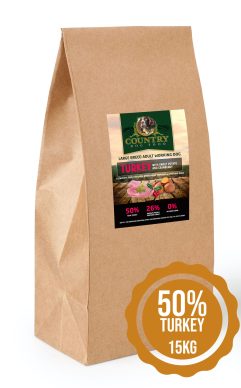 Grain Free Turkey with Sweet Potato & Cranberry – Adult Dog Food£57.84
Grain Free Turkey with Sweet Potato & Cranberry – Adult Dog Food£57.84 -
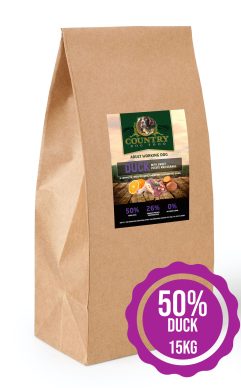 Grain Free Duck with Sweet Potato & Orange – Adult Dog Food£62.62
Grain Free Duck with Sweet Potato & Orange – Adult Dog Food£62.62 -
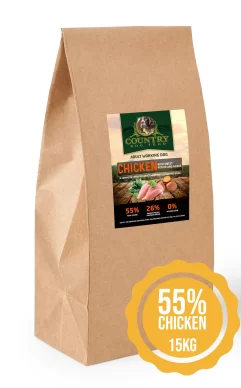 Grain Free Chicken with Sweet Potato & Herbs – Adult Dog Food£55.72
Grain Free Chicken with Sweet Potato & Herbs – Adult Dog Food£55.72 -
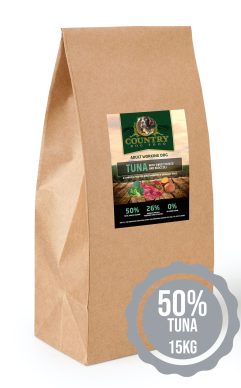 Grain Free Tuna with Sweet Potato & Broccoli – Adult Dog Food£65.50
Grain Free Tuna with Sweet Potato & Broccoli – Adult Dog Food£65.50 -
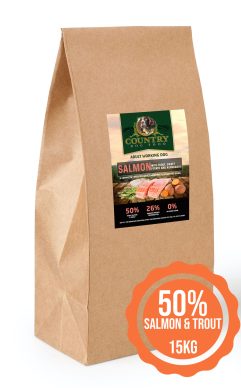 Grain Free Salmon with Trout, Sweet Potato & Asparagus – Adult Dog Food£56.97
Grain Free Salmon with Trout, Sweet Potato & Asparagus – Adult Dog Food£56.97 -
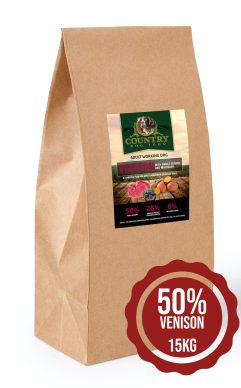 Grain Free Venison with Sweet Potato & Mulberry – Adult Dog Food£67.34
Grain Free Venison with Sweet Potato & Mulberry – Adult Dog Food£67.34 -
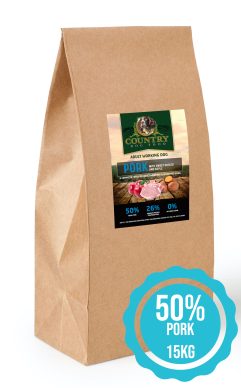 Grain Free Pork with Sweet Potato & Apple – Adult Dog Food£58.34
Grain Free Pork with Sweet Potato & Apple – Adult Dog Food£58.34 -
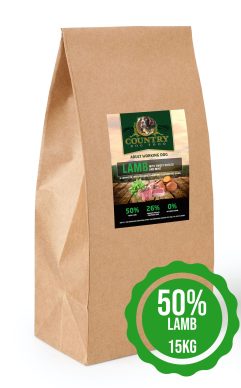 Grain Free Lamb with Sweet Potato & Mint – Adult Dog Food£63.39
Grain Free Lamb with Sweet Potato & Mint – Adult Dog Food£63.39


